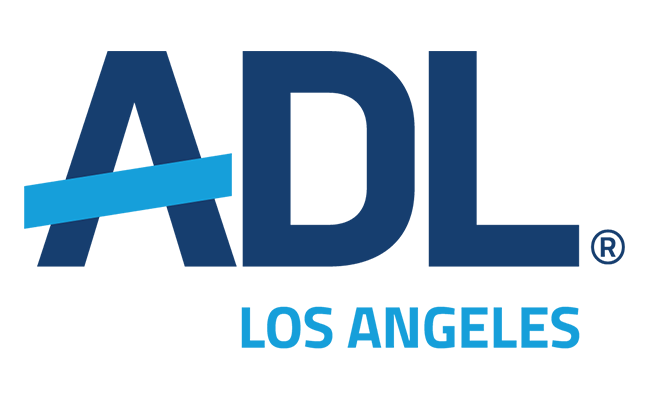
ADL Los Angeles Regional Director Jeffrey Abrams joined Rabbi Adam Kligfeld of Temple Beth Am for a conversation about antisemitism on April 6. The webinar program, How Jews Can Discuss Hate: Navigating Antisemitism in a Polarized Community, was also co-sponsored by the United Synagogue of Conservative Judaism and The Rabbinical Assembly. Mr. Abrams and Rabbi Kligfeld had an informal discussion about both the rise of contemporary antisemitism as well as the responses of various segments of the Jewish community to antisemitism and hate.
Among the topics discussed were the causes of antisemitism today, the polarization of the Jewish community, and the debate over how to define antisemitism. Mr. Abrams began the program by speaking about ADL’s most recent Audit of Antisemitic Incidents (2019), as well as hate crime statistics from the FBI and the County of Los Angeles. He then spoke about resources from ADL on Online Harassment, Jewish American’s Experiences with Antisemitism, as well as ADL’s last survey of Antisemitic Attitudes in the United States.
Rabbi Kligfeld elaborated upon the tensions within the Jewish community and how the polarization within the community has grown. The tensions, he explained, were primarily between viewing the Jewish community through a “Sinai” or an “Auschwitz” lens. In other words, is our focus on Jewish peoplehood and living Jewishly or is it on the need to primarily ensure the physical protection of the Jewish community? For Rabbi Kligfeld, those concepts do not need to live in opposition to one another. “The sign of a mature mind,” he said, “is someone who can hold two opposing ideas simultaneously together and reckon with them.”
During the Question and Answer part of the program, audience members asked about to what ADL attributes the recent rise in antisemitism as well as the sources of that antisemitism. They also inquired about strategies to speak about antisemitism and hate with the non-Jewish community. Mr. Abrams also shared some of ADL’s educational resources on antisemitism and the Holocaust, including Echoes and Reflections, the A World of Difference Institute, and BINAH. To view the entirety of the webinar, please watch below.
For questions on any of the issues raised during this program, please contact us.

